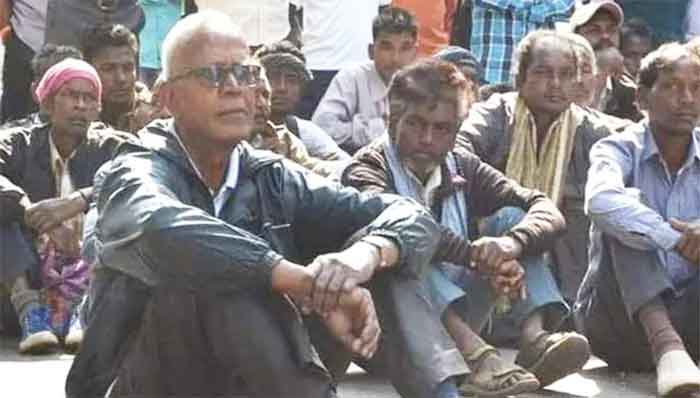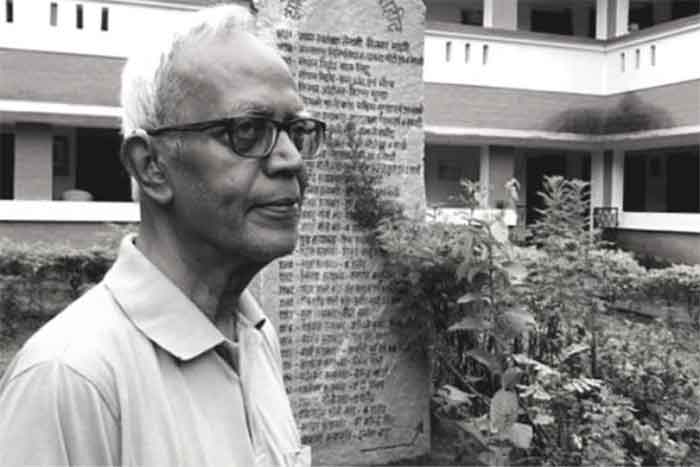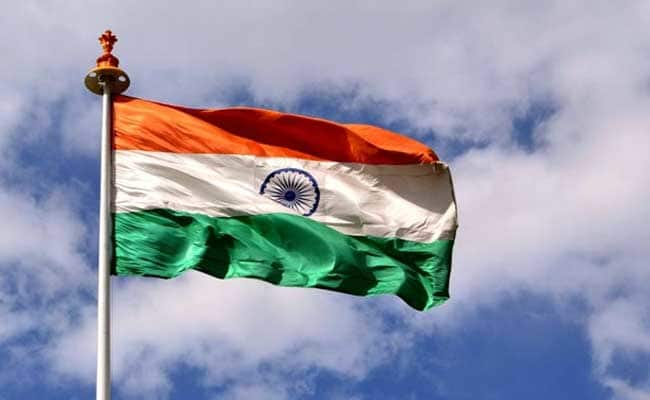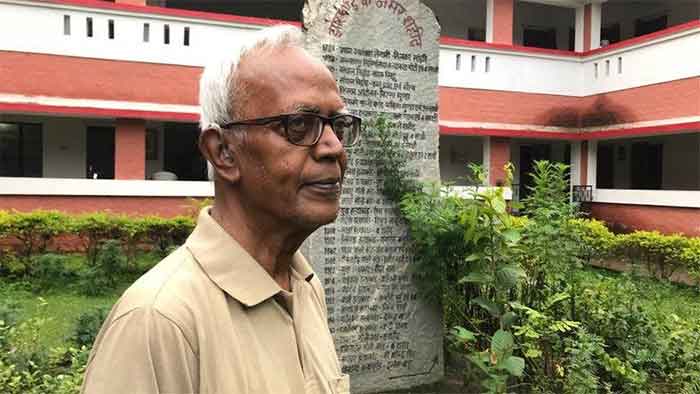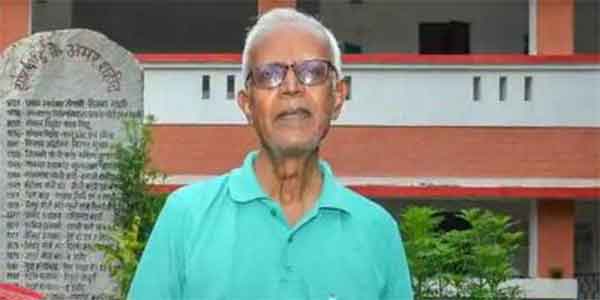
CDRO salutes Fr. Stan Swamy, an activist and a champion of the rights of the tribal and marginalised people. CDRO believes that his death is nothing but a murder in judicial custody and urges all democratic people to protest against the death
Fr. Stan Swamy’s death is nothing but a blatant murder in judicial custody. Modi-government and the Judiciary both are equally responsible for his death. His death is a clear manifestation of the fascist face of the Indian state in the hands of Modi and Amith Shah. It has been a shame for the Indian state to keep an 84-year elderly activist in jail. His death reveals that democracy is at stake, and the Indian judiciary is also on the ventilator. Fr. Stan Swamy’s death marks a dark day in the history of the Indian judiciary, which had failed to consider a plea of an older person who has Parkinson’s disease and post-Covid complications.
Fr Stan Swamy’s death reminds us of the cruelty displayed by the British colonial power in the death of martyr Jatin Das, a comrade of Shaheed Bhagat Singh, an undertrail who was denied bail even on the deathbed.
Coordination of Democratic Rights Organisations (CDRO) strongly condemns the death of Fr. Stan Swamy. It is high time for the Indian judiciary to introspect about its role in protecting the victims of state violence. If, on the one hand, the state has enacted draconian laws like UAPA in the name of the security of the nation, the courts, on their parts, are consenting random arrests under frivolous charges. CDRO strongly believes that the courts have gone far from the principle of “Bail is the rule, jail is an exception”. Hence, the Supreme Court ruling on bail in UAPA cases is highly undemocratic.
Fr. Stan Swamy had sought interim bail in May on the grounds of various health issues. He had appeared before the Bombay High Court through a video conference from Taloja Jail. He had told the court that when he was brought to the jail, his health was functioning correctly, but there has been a deterioration of his health condition in the jail, and he was unable to perform daily chores, including eating and walking without assistance. He had told the court on May 21, “I am eating less and less, and my co-accused are worried about me. I would prefer to suffer and die like this in Taloja jail than being admitted to JJ Hospital. It will not improve; it will keep going. Only one thing that I would request the judiciary is to consider for interim bail. That is the only request.” (https://www.thehindu.com/news/national/other-states/fr-stan-swamy-passes-away/article35143941.ece)
However, for the government and the judiciary, the life of an ailing person is not that much important. It is evident as the court has been postponing the hearings citing various reasons for all these days. Ultimately, when the court had set the time today by 2.30 pm for the hearing, it was too late, and the veteran activist passed away at 1.30 pm at the Holy Family Hospital. His counsel, Sr. Adv. Mihir Desai has pointed out that “we have no grievance against the hospital. However, we cannot say the same thing about the National Investigation Agency [NIA] and State authorities. I am seeking judicial custody into this as there was a delay of 10 days in taking him to the hospital from jail”.
In the past, not only Fr. Stan Swamy but other undertrials of the Bhima-Koregaon case have also been denied release on medical grounds though it is clear to everyone that the jail premises do not have facilities to cater to the medical needs of the inmates and particularly the medical needs of the senior members of the undertrials. This denial of release has been made possible by the NIA and the jail authorities through red tapism. With the death of Fr. Stan Swamy, it becomes more critical for the courts to grant the release of the other undertrials on bail, and the time has come for establishing the principle of “bail as a rule and jail as an exception”.
CDRO demands:
- Immediate release on bail for all political prisoners, including the Bhima-Koregaon undertrials, languishing in different jails.
- Repeal of the draconian UAPA and scrapping of an unconstitutional body of the NIA.
K. KRANTHI CHAITANYA
PRITPAL SINGH
TAPAS CHAKRABORTY
V. RAGHUNATH
(Convenors, CDRO)
Constituent Organisations:
Association for Democratic Rights (AFDR, Punjab), Association for Protection of Democratic Rights (APDR, West Bengal); Asansol Civil Rights Association, West Bengal; Bandi Mukti Committee (West Bengal); Civil Liberties Committee (Andhra Pradesh); Civil Liberties Committee (Telangana); Committee for Protection of Democratic Rights (Maharashtra); Committee for Protection of Democratic Rights (CPDR TamilNadu); Coordination for Human Rights (Manipur); Manab Adhikar Sangram Samiti (Assam); Naga Peoples Movement for Human Rights ; Peoples’ Committee for Human Rights (Jammu and Kashmir); Peoples Democratic Forum (Karnataka); Jharkhand Council for Democratic Rights (Jharkhand); Peoples Union For Democratic Rights (Delhi); Peoples Union for Civil Rights (Hariyana), Campaign for Peace & Democracy in Manipur, Delhi; Janhastakshep (Delhi)
GET COUNTERCURRENTS DAILY NEWSLETTER STRAIGHT TO YOUR INBOX

